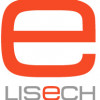Do you write your hubs in British English or American English?
Do you write your hubs in British English or American English?
Being from Australia, generally I only write in the British English way, but do other hubbers who were taught in the British English way ever change their spelling to the American English way?
Since most of my traffic comes from Google.com (not .com.au) would it make a difference? Does Google accommodate for the different spelling variations of a word?I do try to Americanize ( Americanise
 ) my English somewhat when I write Hubs. I am from UK.
) my English somewhat when I write Hubs. I am from UK.Yes, I used to write in British English but have recently changed to American and I seem to be receiving more traffic. I think American English is probably considered to be more universal.
I agree - I used to use some British English words, but I think HubPages editing tools will consider them misspellings sometimes, and misspellings will count against your HubScore.
It probably doesn't matter as far as Google is concerned. I would imagine that they would recognise both spelling variations, especially considering the vast number of commonwealth countries out there.
I'm American so of course I write using American spelling. However I've published a few of my academic papers. In some of those I quoted people who were English and who put way too many letters into many of their words. I didn't change anything. I left the spelling the way they had it because that's what you're supposed to do with quotes. Google seems to like those papers so I don't think it matters.
On a more personal level I like the differences. I would rather people from commonwealth countries keep their spelling variations because I think it adds a bit of character and culture to their writing. It is a part of you, use it.I just did a simple check, and yes it does make a difference, however minor.
Search these two phrases in Google:
"Center of the universe"
"Centre of the unvierse"
Only the top result changed.Even though I was born in America and have lived here most of my life, I find most of my hubs and website blog are more read by those in the UK. I am not sure what you can call my writing. Even being born in America it is not even my second language. I learned it third. The other languages are backwards to both American and British English so I just muddle through.
What I mean by this is the sentence structure is different. What should be first in Spanish and Cherokee have to be at the end of an American sentence. I just passed two years online so have picked up a few nuiances in British, Aussie, and American English. The team I work with are all more British taught than American. I have friends who are Aussies, and would welcome a team member from there if I could find the right one.
I spend most of my time working what is night for me because the rest of the team have day when I should be sleeping. There is only one who is in the same time zone I am and that person lives in Jamaica. This person speaks and writes British English.I am American so I write in American English, even though I live in a former British colony, Malaysia. I think people will write in the style of English they were educated in and feel comfortable with. I don't think it matters to Google or anyone else if you use American or British English.
I write in British English. I hope, but dealing with technical people one can never be quite sure, that someone has realised there are multiple varieties of English out there and translates spelling from English to American where appropriate. Translation of terms is another matter, for example elevator = lift or flashlight = torch could be problematic.
One problem arises if a word is regarded as indecent in the USA but not in the UK. I had such a problem in writing this answer. This is part of the fact universally realised outside the USA that many Americans act as if theirs is the only country in the world.
I generally try to point out the differences in the article while writing, if I realise they exist and make life easier for American readers.That's easy, since I live in America I write in American English. If a person lives in Great Britain then they would write in British English. If a person lives in Canada, then they would write in Canadian English, and Australia it would be Australian English. I'm sure this wasn't much help in answering your question. LoL.
I am from Ireland so British English spelling comes naturally to me but I do try to use American English spelling in my hubs. I'm not sure if it makes any difference to Google.
As I am from the UK, my natural inclination is to use British English, but I do recognise that the majority of readers may be in America, so I vary my writing somewhat.
As far as spelling is concerned, there's usually not much difference anyway so Americans will recognise words such as orientated (oriented), colour (color), and centre (center). If the understanding is clear to all readers, I will always use the British English spelling.
Where there are completely different words, I will often use the American word (eg: candy instead of sweets, and gas instead of petrol). These words are fully understood in the UK because of the influence of American TV, movies etc, but the British English word may be less well understood to Americans.
I would not however, intentionally use any words or phrases which are largely unknown in one country, without providing some kind of explanation.I prefer writing in American English because I am used to it from so many years. Also I feel more comfortable in expressing my views in this language.
I write in British English, as that is what I have used all my life.
I tested the phrase "centre of the universe" and "center of the universe" and found it seems to produce pretty much the same results, though in different sequences. This seems to matter only if people don't check lower down the list.Thanks for your answers. I have never actually tested it before on Google but just I did with a whole bunch of keywords (both long phrase and short phrase) testing both the American and English variations and in all cases the number one search ranking that came up was the one that featured in it's title an exact spelling match of my keyword.
So I guess it does make a difference and we just need to be mindful of which demographic we are writing for, or I guess include in the tags more variationsGreat question and one I came across when Is started on here. I was told that its best to write in American English because if you write in Brit English then google UK picks it up, or if you write in American English then Google.com which is obviously a much vaster country picks it up. So even though I am English I go for the American spelling because you have more people over there! lol! so I get more readers! The reason why we have more letters in the words as someone here mentioned, is that our spelling tends to have a French influence, whereas American is is more Italian or just Local English where they dropped the extra letters over the years. For example, Zucchini is italian, and in England we call it a Courgette taken from the French. I never realised how much french influence we had until I started writing on here. So if you see a word with an extra silly U for example as in 'favour' compared to favor, then you know where we get it from! lol! 'Ave a good 'afternoon! haha! or should I say, bonne journée!
I'm beginning to think that it is a better choice to write in American English as looking at my stats most of my traffic does come from the google.com so I guess from that perspective it would make sense to write that way
I write in American English because I live in the U.S. and that's the way I was taught to write. However, there is a large portion of the English speaking world, including those who speak English in India, that speak and write British English, so there is a large audience for British English. If it helps get picked up by the main google.com site by writing in American English, then I would suggest using it. My hits from Google come from all sorts of Google country sites, but mainly from the main Google.com.
I think that with Hub Pages being a .com domain it makes sense to write American English, as it will likely be picked up by Google.com I have a blog with a .com.au extension which does very well on the Australian Google, but not the American one.
I'm writing in American English too! HubPages main audience is the US audience, so you should do it too.
I started off using UK English, but have gradually changed over to US spelling for most hubs - like others who have answered here most of my traffic is from the US so it makes sense to accommodate that.
However with words that are completely different - eg diaper and nappy - I usually include both terms in the hub. With recipes I include all types of measurement - metric, imperial and cups. So I try to be inclusive as much as possible. For tags I use both US and UK spelling.I think that is a good question and I don't know if Google accommodates for the difference in spellings. As an American I write in American English but wish I knew more about the differences between American and British English. I know some of the more common words, of course, but it would be interesting to read a hub that talks about the differences in more detail.
Google accommodates not only British English but typos and variant spellings. However, it does try to match audience to audience. I'm not sure whether it gives more weight to Hubpages' U.S. location or a hubber's U.K. spellings when trying to decide!
American english is the preferred language, I think, when you are writing for HubPages and even for Google sites. If you write the other way, your words might be underlined with red.
I'm American, so my spellcheck labels any slip into British English as errors! On the other hand, my British friends sometimes make fun of my American (especially the Texan influence) as incorrect. I've never given a thought to what Google might prefer. Do they have an idiom/language monitor? If so, I wish they'd flag the prevalent horrid grammar and spelling in either dialect!!
I am a white Southafrican, so hence my European heritage, I write in British English.
- matama ellieposted 13 years ago
0
As a Kenyan, we were taught British English through out our school years.It can be attributed to the colonization by the British.That being said, i think now that mots young people in Kenya prefer American English because it is easier and less formal, i think. It is the language of the masses and especially the youth, so i personally use it in my writing.
Related Discussions
- 36
Is Google stamping out British English?
by Bev G 7 years ago
The reason I ask this is because I just had a hub edited to change one comma, placed outside quote/speech marks, as per correct British punctuation, to reflect US style. That was the only edit.I don't mind in this case because it is an American-leaning hub. However, I wonder if British English on...
- 36
My hub was "edited" into American English
by Poppy 7 years ago
I guess this is fine. Well. Not really. It's slightly irritating. My cheesy meatball recipe just got moved to Delishably (yay) but was edited; words like "flavour" and "favourite" being 'corrected' to their American counterparts.Shoud I just let it go? Would it be...
- 33
Which English Language and or dialect do you speak?
by Arthur Russ 6 years ago
Which English Language and or dialect do you speak, and is it Your Native Tongue? I often have difficulties in fully understanding Americans during ‘in-depth’ correspondence on topical subjects because we speak two different languages e.g. American English and British English. Prima facie the...
- 38
Is American-English spelling used more than UK-English spelling?
by Baileybear 14 years ago
I raise this question after reading an informative hub on keyword searches. I asked the writer if she uses American spelling if gets more hits, even though from UK and she said yes, as well as using American terms. Will the English language ever be standardised? (swap the s for a...
- 22
A case of words, spellings and cultural pride
by Duane Hennessy 6 years ago
Writing from Australia we use some different words to England and the US we also have a mixture of spellings from both countries.A classic example, in relation to an article I'm currently writing, is the word for sneakers.In England they use the word trainers, in the US they use sneakers and in...
- 16
I thought English spellings were acceptable?
by Bev G 3 years ago
Just had to go through a ton of edits made by HP editors. A lot needed correction. For example, the editor changed the word 'over' to 'cover'. And in another, they'd capitalised 'tarot' throughout. As I have Grammarly, it became obvious that they accepted Grammarly's suggestions willy-nilly without...




























